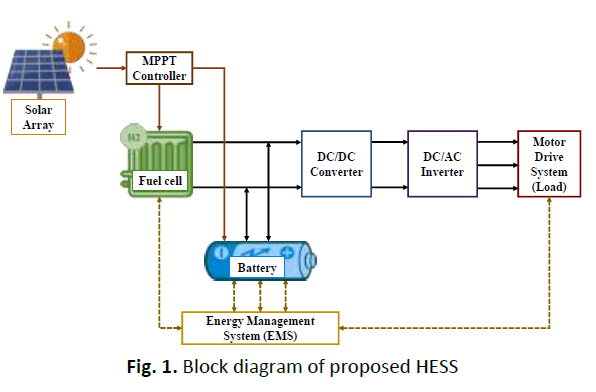Modeling and Simulation of Integrated Solar PV/Battery/Hydrogen Hybrid System for Enhanced System
DOI:
https://doi.org/10.37934/sijmpe.3.1.1931Keywords:
Fuel cell, hybrid energy storage system, electric vehicles, load demand, transient stabilityAbstract
This paper describes an ongoing engineering project and outlines the modeling and simulation of a Hybrid Energy Storage System (HESS) of an electric vehicle using fuel cells and batteries with the aid of MATLAB/Simulink. The key purpose of this research is to develop and demonstrate the hybridization compatibility between both devices to ensure overall system stability and minimize transient effects. At present, researchers have proposed several types of nonhybrid Energy Storage System (ESS) which mostly involves batteries, also referred to as Battery Energy Storage System (BESS). The problem with this conventional system is that the system itself is jeopardizing and not efficient enough to lower the rate of transient, resulting in a longer response time. On that account, the hybridization between two types of sources, which in this case is the fuel cell and battery, is required along with the presence of a network controller. The network controller proposed for the HESS is Artificial Neural Network (ANN) as it is suitable for capturing complex and nonlinear relationships data. In general, this research aims to increase the stability and reliability of the entire system performance.









